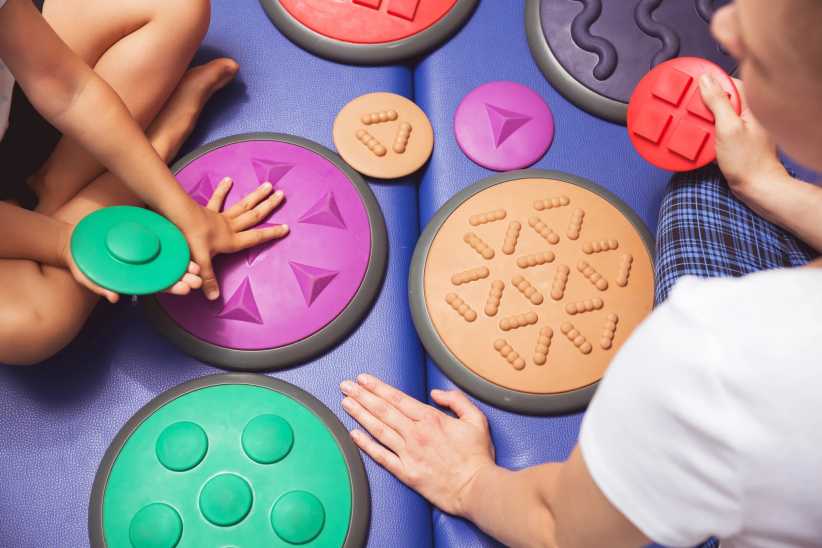When a child comes home from a long day at school, the last thing he wants to do is sit down and tackle his homework. And a child with special needs may have an even harder time focusing for extended periods of time. As parents, we need to accept that such difficulties will not go away overnight. Instead, we need to always remain patient and implement strategies to work around our children’s weaknesses. Here are some helpful techniques and suggestions that I have seen work firsthand during my professional experiences as a speech-language pathologist:
Allow time to unwind
After your child has had a long and exhausting day of learning in school, provide him with some immediate downtime. There should be an opportunity to unwind. Allot 30 to 45 minutes for a fun activity before he starts in on his homework. Let him watch television, have a snack, or talk to a relative (i.e. grandparent, aunt, uncle, etc.) over the phone or Skype about how his school day went, upcoming special occasions, or favorite hobbies. Then, make sure he starts his homework immediately. Highly structured learning environments are most conducive to learning.
Get up and move
It has also been well noted that children with special needs may have some component of sensory integration dysfunction. The ability to process information from the senses (touch, movement, smell, taste, vision, and hearing) and respond appropriately may be impaired. These children typically have one or more senses that either over- or under react to stimulation. This problem can be addressed through providing the child with more sensory-based activities; such as playing tug-a-war with heavy objects such as a medicine ball, allowing for increased opportunities of outdoor play, and visiting sensory gyms that specialize in providing specific tactile input for children.
If you notice your child has tantrums frequently, is self-involved with repetitive hand flapping, or becomes overly fixated with specific objects or electronics, allow for an alternative approach to wean him out of this maladaptive behavior pattern. The use of short periods of exercise (i.e. a five- to 10-minute walk, taking a bike ride, or playing in a park) and also any positive, mini distractions (i.e. reward charts) can help to refocus your child and reduce sensory overload.
Reward good behavior
Use a reward system to encourage your child to complete his homework. Place a chart on the kitchen refrigerator. Each time your child completes an assignment, have him place a sticker on a chart. After 10 stickers, a trip to Toys “R” Us may be quite rewarding. It is also extremely beneficial to reiterate the reward that he’ll get after the homework is successfully completed.
Learn his learning style
We are all unique in this world, and each of us has varied learning styles. It is important to identify your child’s. This understanding will help you fine-tune the way in which information is received, processed, and stored in his memory. Your child’s classroom teacher or speech-language pathologist can provide you with the types of learning styles which your child is presently exhibiting.
The three main learning styles are visual, auditory, and tactile/kinesthetic. A visual learner benefits from seeing what she is expected to know. Diagrams, charts, and displays placed on classroom boards are quite beneficial for a visual learner. An auditory learner does his best when learning through listening; depending on primarily hearing and speaking. Tactile and kinesthetic learning occurs while carrying out physical activities, rather than specifically listening to a classroom discussion. Many children and adults learn through a combination of styles, but typically a preference is eventually identified. By becoming aware of your child’s learning style or styles you’ll better be able to help him complete his homework.
Try mnemonics
Homework is a review of what was most recently taught. Memory plays a large role in retaining newly taught information. Depending on which level your child is presently functioning, some type of mnemonic strategies can be quite useful. Mnemonics refers to a device such as a pattern of letters, ideas, or associations that assist in remembering information.
A very popular mnemonic strategy is to use letter prompts to remember lists of things. For example, if a student is required to remember the specific colors of the rainbow, then a mnemonic letter prompt of “ROY G BIV” will help children to remember the sequence of the hues commonly associated with it (red, orange, yellow, green, blue, indigo, and violet). Acronyms such as these are priceless when it comes to remembering information identified within categories.
In a nutshell, the above mentioned strategies and suggestions can truly help your child during homework time. Always remember to practice patience with your children. In time, routines will develop, and the homework experience will develop into very meaningful learning opportunities. For further information on specific strategies to help with your child’s learning, visit www.speakingfromtheheart.org.
Thomas C. Daus is a speech-language pathologist.













